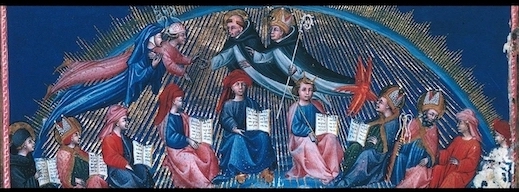Fé e ciência no Tractatus de sex dierum operibus de Thierry de Chartres
Palavras-chave:
Thierry of Chartres, creation, science, faith, phisicas rationesResumo
O Tractatus de sex dierum operibus de Thierry de Chartres é um marco na história do pensamento platônico da Escola de Chartres. Seu objetivo é conciliar a ciência com a descrição dos seis dias da Criação do livro do Gênesis. Sua doutrina de caráter realista ante rem tem por eixo os princípios de causalidade facultados pelo De Trinitate de Boécio. Deste autor é também o suporte filosófico e epistemológico, concedendo às scientiae speculativae a aptidão para estudar Deus e o universo. Dois aspectos merecem particular realce na obra: a exposição secundum phisicas rationes — que crê numa força concedida por Deus aos elementos (causas seminales); e as provas (probationes) de Deus pelo quadrivium. Por essas razões, o Tractatus abre a possibilidade de interpretar a obra dos seis dias à luz da fé sem prescindir das especulações científicas. /// The Tractatus de sex dierum operibus of Thierry of Chartres is a landmark in the history of platonic thought of the School of Chartres. Its aim is to reconcile science with the Book of Genesis’ description of the six days of creation. Its doctrine is of a realistic ante rem character which revolves around the causality principles provided by the De Trinitate of Boethius. This author also serves as the philosophical and epistemological framework furnishing the scientiae speculativae the aptitude to study God and the universe. Two aspects deserve special emphasis in the work: the exposition secundum phisicas rationes — which believes that the elements are endowed with God-given strength (causas seminales); and the proofs (probationes) of the existence of God by the quadrivium. It is then fair to say that the Tractatus opens the possibility of interpreting the work of the six days from the light of faith without prescinding from scientific speculations.Edição
Seção
Articles






